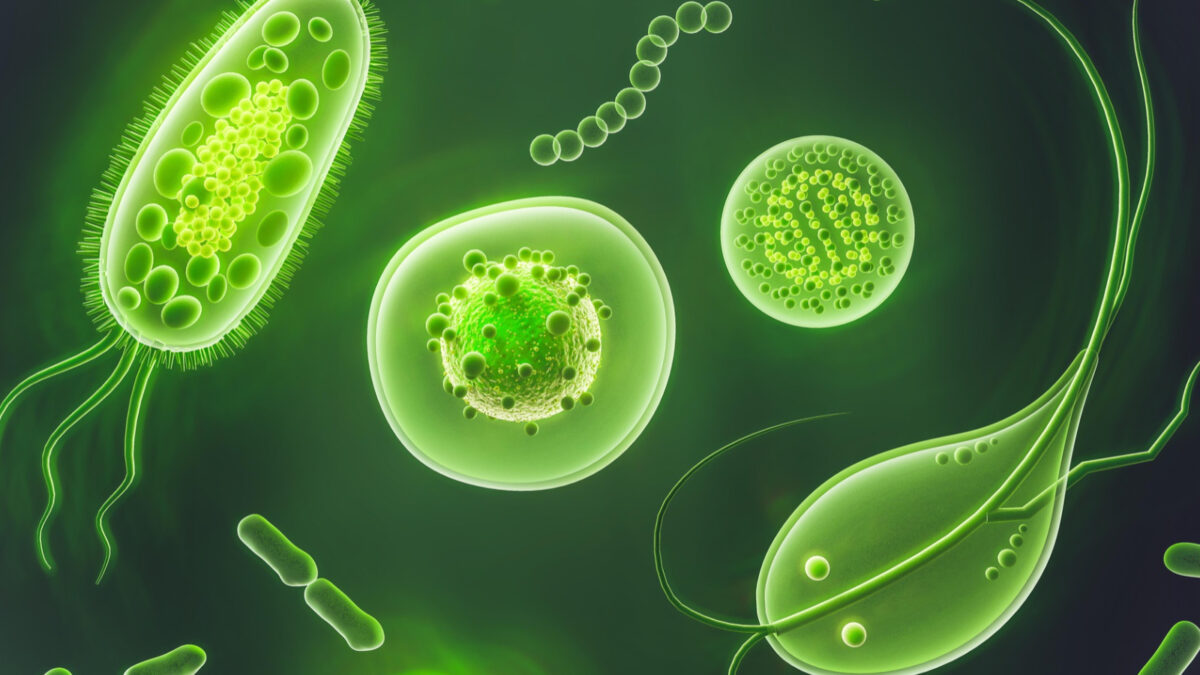The Ketogenic Diet: A Powerful Ally Against Parasite Infections
Parasite infections are no fun. They can make you feel downright miserable, with unpleasant symptoms that range from fatigue and bloating… to abdominal pain, brain fog and worse.
But what if there was a dietary approach that could help you fight back against these pesky invaders?
Get ready to discover the amazing world of the ketogenic diet and how it might just be the friendly ally you need to combat parasite infections.
But before we do, let’s take a moment to delve into the fascinating world of parasitology and understand how we end up with these unwelcome guests in the first place…
Parasitology 101: How Do We Get Parasites?
Parasites have stealthy ways of entering our bodies through various avenues. Contaminated food and water, poor sanitation, close contact with infected individuals or animals, and even insect bites can all act as gateways for these unwanted intruders.
What’s more, certain factors can increase our vulnerability to picking up a parasite.
One such factor is an unhealthy diet. When we consume contaminated or undercooked foods, especially meats and seafood, we unknowingly introduce parasites into our bodies.
Additionally, a weakened immune system, caused by chronic stress, malnutrition, or certain medical conditions, can make us more susceptible to parasitic infections.
Now, here’s something you may find surprising: Parasites are still a modern-day epidemic, despite what many people believe.
The Silent Epidemic: Why Parasites Remain an Undiagnosed Problem in the Modern World
In fact, undiagnosed parasite infections silently affect millions of individuals worldwide.
Despite their prevalence, parasites often fly under the radar due to a general lack of awareness. Many people associate parasites only with exotic travel destinations, unaware that they can be found closer to home.
What’s more, parasitic infections can present with a wide range of seemingly unrelated symptoms, often mirroring other common health conditions. Digestive issues, fatigue, unexplained weight loss, and skin problems are just a few examples. The overlapping symptoms make it challenging to differentiate between a parasitic infection and other issues, leading to misdiagnosis or missed diagnoses altogether.
Another reason parasites go undiagnosed is the limitations of conventional testing methods. Many routine medical tests are focused on identifying common infections, while specific parasite tests may not be routinely performed unless there is a strong suspicion. This lack of comprehensive testing contributes to the underdiagnosis of parasitic infections. In addition, testing may not “catch” the parasite at the right time in its life cycle, resulting in a false negative.
Now you might be wondering: Are these unwanted guests secretly residing within you?
Spotting the Signs: Symptoms of Parasites
Parasite infections can present a wide range of symptoms, depending on the type of parasite and the affected organ or system. While some infections may cause mild or no symptoms at all, others can lead to significant discomfort and serious health complications.
Here are some common symptoms associated with parasitic infections to keep an eye out for:
- Gastrointestinal Issues: Parasites that infect the digestive system often cause symptoms such as abdominal pain, bloating, diarrhea, constipation, and nausea. These symptoms may persist or come and go, and they can worsen after consuming contaminated food or water.
- Fatigue and Weakness: Many parasite infections can leave you feeling fatigued, weak, and generally unwell. This can be attributed to your body’s immune response to the infection and the nutrient depletion caused by the parasites.
- Weight Changes: Unexplained weight loss or weight gain can be a red flag for a parasitic infection. Some parasites interfere with the body’s ability to absorb nutrients, leading to weight loss, while others may cause fluid retention and result in weight gain.
- Skin Problems: Certain parasitic infections can cause skin-related symptoms like itching, rashes, redness, sores, and inflammation. These symptoms may occur at the site of entry or spread of the parasites, or they may result from your body’s immune response.
- Allergies and Food Intolerances: Some parasites can trigger immune reactions that manifest as allergies or food intolerances. If you have a parasitic infection, you may notice increased sensitivity to certain foods, environmental allergens, or even develop new allergies.
- Neurological Symptoms: In some cases, parasitic infections can impact the central nervous system, leading to neurological symptoms. These may include headaches, dizziness, confusion, seizures, and even behavioral changes.
- Anemia: Certain blood parasites, such as those causing malaria or hookworm infections, can lead to anemia. Anemia can cause fatigue, weakness, pale skin, shortness of breath, and poor concentration.
It’s important to remember that these symptoms can also be attributed to other health conditions. So, always reach out to your trusted healthcare provider for proper evaluation and guidance.
Now for some good news! There are a number of natural herbal protocols available to help combat parasitic infections. And exciting new research shows promising results for a therapeutic diet that seeks out and destroys parasites…
Bolster Your Body’s Anti-Parasite Powers with The Keto Diet
In a groundbreaking study published in the journal Mucosal Immunology, researchers explored the potential of a high-fat, low-carbohydrate diet in boosting the immune response against helminth infections. (Helminths are just one variety of sneaky parasitic worm that loves to wreak havoc, affecting millions of people worldwide)
The researchers found that subjects on a high-fat diet showed impressive resistance to helminth infections compared to their counterparts on a regular diet.
But wait, it gets even better!
The ketogenic diet actually triggered a shift in the immune response, unleashing a superhero-like defense mechanism known as the type 2 immune response. This immune response is specifically tailored to combat those pesky worms.
The Type 2 immune response is characterized by its ability to:
- Induce inflammation
- Recruit immune cells
- Promote tissue repair and remodeling
It is a concerted effort aimed at eliminating parasites while minimizing collateral damage to host tissues.
In the study above, the researchers discovered the ketogenic diet enhances this beneficial Type 2 immune response, fortifying the body’s defenses against helminth infections.
By activating eosinophils, macrophages, and other key immune cells, the ketogenic diet provides a friendly boost to our natural defenses, making it harder for parasites to establish themselves and thrive.
By harnessing the power of this specialized immune response through dietary interventions like the ketogenic diet, we open up new possibilities in the fight against parasite infections.
As the ketogenic diet works its magic, these immune cells are activated and mobilized into action. They produce specialized messenger molecules called cytokines, which act as the conductors of the immune response, orchestrating it like a well-choreographed dance.
You can think of cytokines as the generals, issuing commands to different components of the immune system to launch a coordinated attack against the parasites.
Now here’s the real surprise…
The protective effects of the high-fat diet go beyond just altering the composition of your gut microbiota. In fact, while the microbiota certainly plays a role, the ketogenic diet’s superhero status primarily stems from its direct impact on your immune system itself.
By following a ketogenic diet, you’re equipping your immune system with the necessary tools to combat parasites more effectively. The diet enhances the function of immune cells, boosting their ability to recognize and eliminate the invaders.
The Keto Diet for Healthier Immunity & a Healthier YOU!
While some treatments solely focus on targeting the parasites or altering the gut environment, the ketogenic diet takes a holistic approach, bolstering your body’s natural defenses from within.
By embracing the ketogenic lifestyle, you can unlock a world of benefits that go beyond weight management and metabolic health.
Through the ketogenic diet, you can strengthen your body’s natural defenses and make it harder for parasites to establish themselves. By activating key immune cells and producing specialized messenger molecules, your immune system orchestrates a coordinated attack against unwanted guests.
So, why not embrace the ketogenic diet and unlock its potential for healthier immunity and a healthier you? You can think of it as a fat-fueled force field that repels parasites and promotes overall well-being.
Start your journey today and discover a world of healthier immunity and a healthier you!
Here are some delicious parasite-fighting keto meals to get you started:
- Crispy Skinned Chicken Thighs with Avocado-Tomato Salsa
- Wild Salmon with Pesto & Zoodles
- Grass-Fed Ribeye with Fauxtatoes and Mushroom Pan Sauce





Leave a Reply